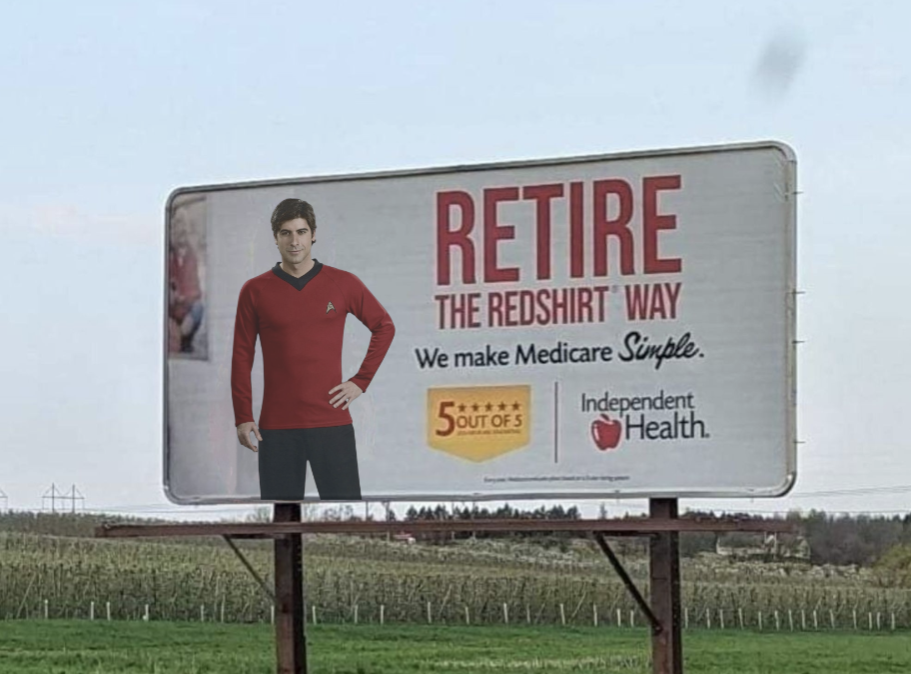


Also The_Picard_Maneuver@lemmy.world





Usually, but I love the optimistic fanfare of the TNG intro, and it has a habit of drawing me in.





This is why I love TNG so much. Even though TOS is the original that laid the groundwork for everything, TNG took that “boundless optimism” and ran with it. Watching TNG inspires me to continue to self-improve and encourage it in others.


Yeah, there’s a singular implied “universal morality” throughout Star Trek of accepting diversity and learning to not impose on other civilizations or each other on the basis of one’s biological differences or culture, even for Klingons! I’d say the rest is hard to define and subjective, as @ValueSubtracted@startrek.website said above, but post-scarcity and free agency in life to follow your passions has to be pretty close!


That’s a good point. I think this contrast between individual (often flawed) human judgment vs collectivist ideals has always been a theme. In TOS, you see Kirk calming McCoy’s knee-jerk reactions almost every episode. In TNG, it was Yar or Worf. In DS9, probably Kira.
Even then, I would say the collectivist ideals (i.e. Starfleet regulations) were more often portrayed as overly-cumbersome in implementation, which leads to someone like Kirk violating the rules in place of the ideals that they stand for. For example, how many naïve (but well-meaning) diplomats do we see in TOS or TNG? However, rules being restrictive or imperfect in an effort to support larger agreed-upon morals can still be trusted, compared to corrupt power structures, which cannot.


Ah damn, sorry about the paywall. It let me hit “continue reading” on mobile, but I know sometimes these types of sites can be inconsistent.


It’s just another tired bit about how following orders and perfect institutions are what Star Trek is really about, to hell with any evidence to the contrary.
I’d argue that the theme is less about following orders and more We are all individually flawed and are at our best when we follow our shared values - which is represented by both Starfleet and the utopian setting as a whole.
I can see the argument (for fiction and real life), that as we trust institutions less, our focus becomes more on individual judgement rather than collectivist ideas. It also tracks for me that as this occurs in real life, our media would reflect individualism more and more.


I’ve admittedly still only watched up through the 90s, but I’d definitely say that DS9 depicted a significantly more “morally gray” version of Starfleet than TOS or TNG.
I think the point the author is making is that the extent to which this idea gets explored is reflective of our society’s growing mistrust of institutions IRL, rather than suggesting the theme has never been explored.


I hope you enjoy it! Maybe by the time you finish TNG, you’ll have switched “sides”!


Twitter reminds me of the worst parts of the old “wild west” internet now. There’s still some good content, but it’s hidden among scams, skeezy porn ads, and some of the worst opinions you’ve ever read.
I feel pretty immune to that kind of stuff, but it’s a huge culture shock after browsing moderated social media.
Isn’t this basically what Batman did?


What a great episode though. I just finished a rewatch of TOS a few weeks ago, and I love it so much.


Almost 60 years worth at this point. Hope you enjoy the journey!


On my very first watch of TNG, I was so annoyed the first couple of times I saw Lwaxana or Q dominate an episode, but by the end of the series I was cheering every time they showed up!


You’re right, we should be cutting out the bloated middleman entirely.


This is a good step in the right direction, but I’d like to see it applied to commercial plans as well. Prior authorization is everything they’re saying it is and worse.
I’m not a nurse, but I think the way you’re charting is the correct way to protect your license. If they’re A&Ox4 then there’s probably not a legal/regulatory reason to sit and watch them, but it’s also probably not out of bounds for hospital policy to require staff to observe and confirm any intervention (including meds) provided while under their care.
Now, whether they’re going to take into account how much cumulative time/work that adds to the nurses and then staff accordingly is another story… (Hint: they won’t)


Black mirror is a lot like a modern Twilight Zone, which early Star Trek was significantly influenced by, and now a fan who directed an episode inspired by Trek gets to do actual Trek?
I can feel my hopes getting up.